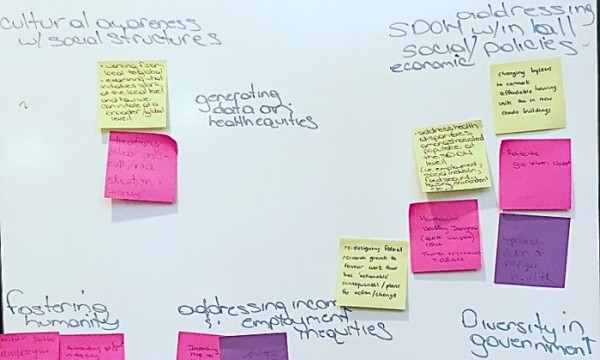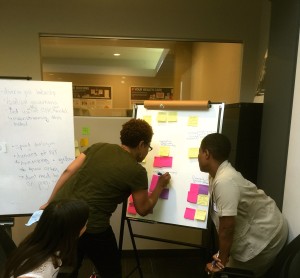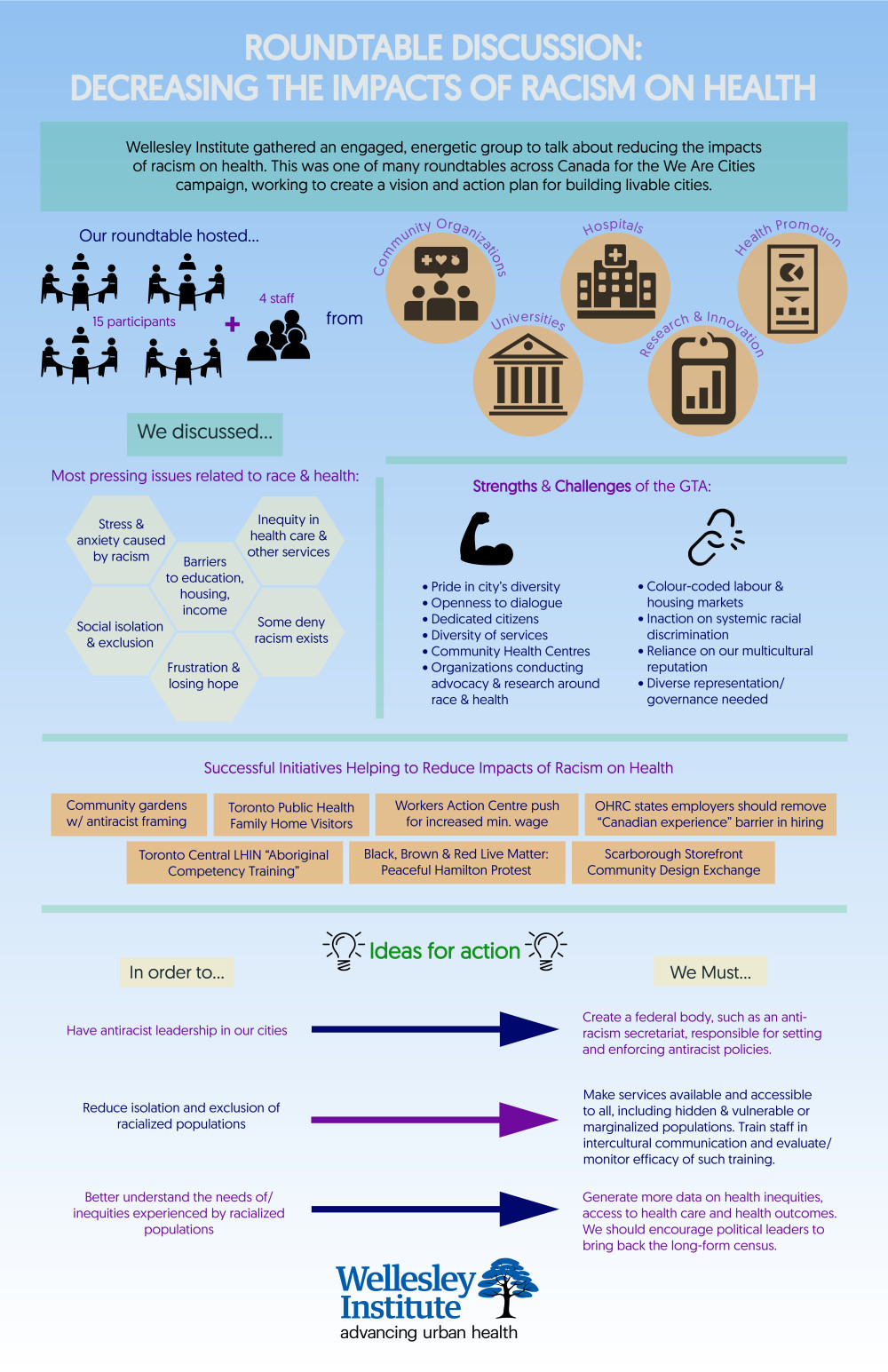
Building on the momentum of the We Are Cities campaign and Wellesley Institute CEO Kwame McKenzie’s work on the intersection of race and health, we saw an opportunity to connect some dots by hosting a roundtable on the theme of reducing the impacts of racism on health in cities.
Racism is toxic. #Racism shortens your life #wearecities #healthequity #equity #health #SocialDeterminants — Cheyanne Ratnam (@CheyRatnam) May 27, 2015
It’s a good time to talk about cities and how we live in them. For Wellesley Institute, the way in which living in a city impacts our health is an important focal point. But we are not just talking about doctors, drugs, and hospitals. We are talking about the social determinants of health: where we live, work, play and age.
Big deep questions:what is the most pressing issue, what are the strengths and weaknesses of the GTA in managing racism +health #wearecities
— Anu Radha Verma (@aradhaverma) May 27, 2015
 So for us, the impact of racism on health was an important topic that was missing from the We Are Cities city building conversation. Toronto is a diverse city, and it came through during our roundtable that people are proud of our city’s diversity. But there are many issues to address, from access to culturally appropriate services, to actively working toward a city that celebrates cultural diversity in all aspects, to having open conversations about racism and its impacts on people’s housing, working lives, and communities.
So for us, the impact of racism on health was an important topic that was missing from the We Are Cities city building conversation. Toronto is a diverse city, and it came through during our roundtable that people are proud of our city’s diversity. But there are many issues to address, from access to culturally appropriate services, to actively working toward a city that celebrates cultural diversity in all aspects, to having open conversations about racism and its impacts on people’s housing, working lives, and communities.
Moving forward from our May 27th We Are Cities roundtable, we want to continue this conversation and move toward action on these issues. We want to decide together which issues need more research, which issues need a policy change, which issues need to be talked about and shared between communities. In doing so, we hope to move the needle on improving health through decreasing the impacts of racism in the City of Toronto.
